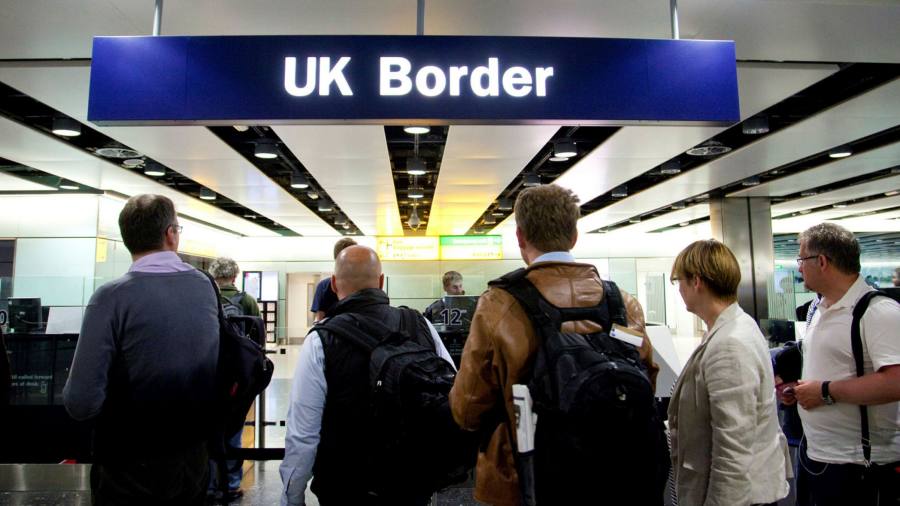[ad_1]
A new UK visa to attract fintech specialists risks producing disappointing results unless the government learns from previous failures in the field, experts have warned.
Rishi Sunak, chancellor, unveiled in Wednesday’s Budget an “elite, points-based visaâ€, to be introduced by March 2022, to make it easier for specialists in the growing financial technology sector to move to the UK.
TechUK, the industry body, and companies have welcomed the visa as part of the solution to the shortage of homegrown experts in a sector in which the UK hopes to be a world leader.
However, Julia Jackson, a consultant at Wedlake Bell, a City law firm, warned that the new visa would have to be better designed than previous government attempts to facilitate controlled immigration.
“Current schemes have struggled with a basic conundrum,†she said. “How to create a system that is cheap and seamless for those workers the UK regards as economically desirable, while barring enough applicants to maintain confidence on migration control among a largely distrustful public.â€
Ian Robinson, a partner at Fragomen, a specialist immigration law firm, agreed, and warned that the steady creation of new visa categories risked baffling potential applicants.
“You just end up with a very confused hotchpotch of visa categories,†he said.
The new visa comes two months after the end of free movement between the UK and the EU made it substantially more difficult for businesses to recruit staff from mainland Europe.
Although new rules have simultaneously made it easier to obtain visas for workers coming from outside Europe, many companies are concerned they will struggle to recruit staff with the specialist skills and experience needed in some fast-growing technology fields.
The Home Office has not yet published the detailed rules governing the new visa.
Julian David, techUK’s chief executive, welcomed the proposed visa in principle, saying “determined action†was required to fill the large numbers of jobs in the sector that were going unfilled.
“The announcement of a new fast track visa scheme demonstrates how the UK can use a new approach to our borders to attract the best global talent,†David said.
However, Alan Manning, professor of economics at the London School of Economics and former head of the government’s Migration Advisory Committee, pointed to past experience as evidence that the new visa was unlikely to produce the desired influx of appropriate, well-qualified workers.
He said that one previous visa class — the “entrepreneur†visa — had attracted large numbers of applicants. But in 2015 the committee criticised their quality, saying it had a “long tail of low-quality projects†and that they contributed “little or nothing to UK plcâ€.
Meanwhile, the replacement for that visa — the “innovator†visa — has rules so tight that it has struggled to win any applicants at all, Manning said. Figures up to the end of December showed that only 280 of the visas had been issued in its first 18 months of operation.
The chancellor announced a review of the innovator visa alongside plans for the fintech visa.
“The UK has had trouble finding the sweet spot if it exists,†Manning said.
TechUK declined to say how it thought the new visa class could avoid the pitfalls into which previous visa programmes had fallen. The Treasury said the new visa would fast-track high-skilled workers to fast-growing companies.
“We are going further with a simpler sponsorship process, automatic visas for global award recipients, and a scheme that actively recruits international entrepreneurs — to boost firms and drive economic growth,†the department said.
Manning said there would need to be “clear monitoring and evaluation†to detect any problems with the new visa quickly. This had “often been lacking†in the past, he added.
“I worry that the UK, unable to learn from the past, will continue to lurch between an overly open and overly closed work migration policy without ever being able to steer a steady path,†Manning said.
[ad_2]
Source link





